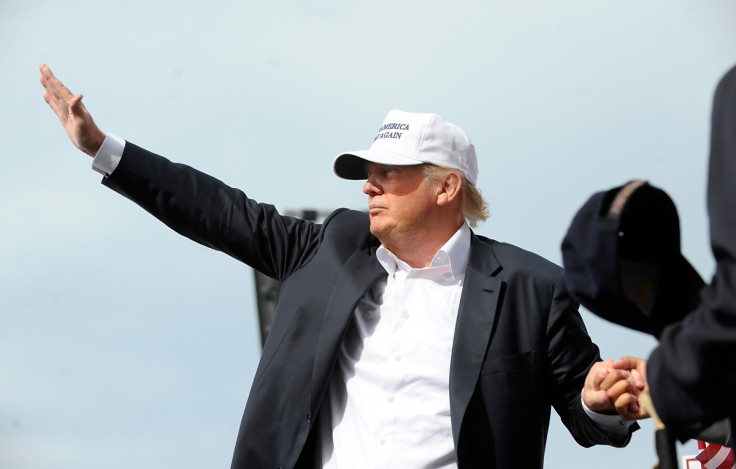US election 2016: Donald Trump's campaign to negotiate directly with TV networks on debate format

Donald Trump continues to keep his fellow Republican presidential contenders on their toes. On 2 November Trump's campaign announced that he would be negotiating directly with TV networks on the format of future GOP debates, instead of joining forces with other campaigns.
Representatives from his campaign, and nearly all the other Republican campaigns, had met at Washington-area hotel on 1 November to create a list of demands from networks before he announced his decision. However, Trump's allies said the bombastic real estate mogul has little interest in promoting the demands of his opponents, The Washington Post reported.
"As we have for the previous three debates, the Trump campaign will continue to negotiate directly with the host network to establish debate criteria that will determine Mr Trump's participation," a Trump aide told The Hill in an email. "This is no different than the process that occurred prior to the FOX, CNN and the CNBC debates."
According to The Hill, some representatives from other GOP campaigns appeared a bit shocked at Trump's decision. "He was among one of the first candidates to pull us all together. It seems kind of strange that he's jumping ship," one Republican campaign aide said. Barry Bennett, Ben Carson's campaign manager, added: "From what I can tell, he wants to send his own letter on his own letterhead."
However, Bennett added that Trump jumping ship would not derail the group's decision to send networks a letter of their demands. He added that he expected most of the campaigns to sign a letter within the next 48 hours, which includes demands for 30 second-long opening and closing statements, pre-approval of biographical graphics and the elimination of lightening-round-style questions, The Hill reported.
The campaigns also hope to get the networks to agree to debates that are no longer than two hours, rooms below 67°F and an agreement that moderators will focus on substantial issues instead of pitting the candidates against each other.
The action by Trump and other Republican presidential candidates was not well received by network executives, who said they do not have much interest in altering a debate format that was agreed upon months in advance. "Do you want Ben Carson deciding who your moderators are? The answer is no," one executive said to The Post. "Do you want Bobby Jindal's campaign dictating how the debates will be run when Bobby Jindal may not even be in the race much longer?"
However, Trump's solo decision did receive the support of at least one person: Republican National Committee spokesman Sean Spicer. "These debates have always been about the candidates," he said. "The candidates will be and always should be determining the best format for them." According to The Washington Post, the next debate on 10 November and hosted by Fox Business Network is expected to broadcast as planned.
© Copyright IBTimes 2025. All rights reserved.






















